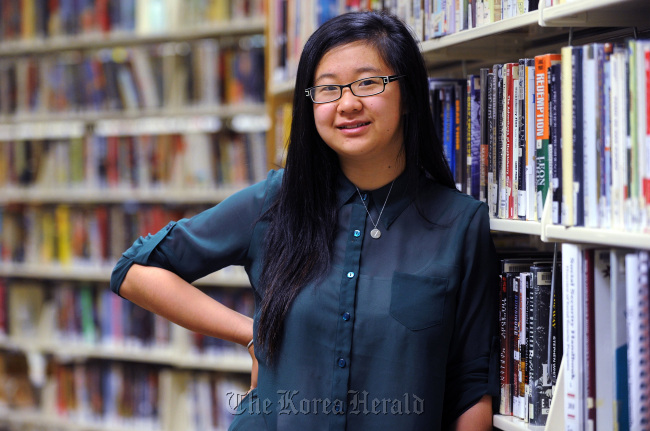ATLANTA ― Despite the “model minority” stereotype that presumes all Asian-Americans are prosperous and well educated, Keish Kim’s family is not well-to-do and she can’t get into her dream college.
The first blow to Kim’s quest for success came when the lawyer hired by her family to handle their immigration from Seoul, South Korea, in 2000 (when Kim was 8) missed a crucial deadline, making it impossible for them to attain citizenship. The second came in 2010 when the state Board of Regents barred illegal immigrants from attending the state’s top five universities.
But not long after the regents made their decision, Kim found herself receiving instruction from University of Georgia professors at Freedom University, an underground classroom for illegal immigrants provided by volunteer teachers at an undisclosed location in Athens, Georgia.
 |
Keish Kim, 20, graduated from Centennial High School in Roswell, Georgia, in 2009. Kim wants to be a lawyer and was accepted to the state’s most competitive schools, but couldn’t attend because she couldn’t afford out-of-state tuition. Kim poses on June 27 for a photo at the Northeast/Spruill Oaks Library, in Johns Creek. (Atlanta Journal-Constitution/MCT) |
“We were all qualified professors, so we thought that is something we can do,” said history professor Pamela Voekel, a co-founding faculty member of Freedom University. “All it would take was our time and effort, while the students and their families were risking so much.” While the volunteers at Freedom University hope the regents eventually change their policy, many people support the rule, believing that for every illegal person attending a public university, a U.S. citizen is turned away.
And, as regents spokesman John Millsaps said, “There are 30 other public institutions in the University System of Georgia that undocumented students can attend.” However, some believe the policy should go further. Earlier this year Rep. Tom Rice, R-Norcross, sponsored a bill that, had it passed, would have barred illegal immigrants from attending all public colleges.
“Thousands of Gwinnett students can’t get into the University of Georgia because it’s full,” said Rep. Don Balfour, R-Snellville, who supported the bill. “People who are legal in the state should be getting positions before people who are illegal.” Even before that political maelstrom hit, Kim’s quest for higher education was stymied. She worked hard in school, scoring A’s and B’s at Centennial High School in Roswell, Georgia. But as graduation approached and college acceptance letters began to arrive, Kim feared her dream was ending.
In Seoul, her family lived an upper-middle class lifestyle, but Kim and her brother didn’t have access to the educational opportunities they do in Georgia. Here, they attended excellent schools, but her parents struggle to make ends meet.
Paying for college didn’t figure into the family’s meager budget. Kim qualified for the HOPE scholarship, but she couldn’t accept it because she didn’t have a green card or Social Security number. “I couldn’t even get a private loan, let alone a federal loan,” she said.
It’s a story not unfamiliar to other illegal immigrants brought to the U.S. as children ― immigrants like Jessica Colotl. The Kennesaw State University student’s arrest on campus for a traffic violation in March 2010 sparked a controversy when college officials disclosed they had charged her in-state tuition. State rules require illegal immigrants pay the more expensive out-of-state rates.
Colotl’s arrest resulted in the Board of Regents’ decision to ban illegal immigrants from attending state colleges that had previously rejected academically qualified applicants because of space or other issues.
The affected campuses were: University of Georgia, Georgia Tech, Georgia State University, Medical College of Georgia and Georgia College & State University.
That’s when Freedom University was born.
“I was surrounded by people who wanted to learn, taught by teachers who loved to teach,” Kim said. “The level of excitement in the room was overwhelming.” In May, they completed the first year.
When asked about Freedom University, regents spokesman Millsaps said he was aware of it but was “not qualified to make any comments” about it.
Last month, Kim, now 20, sipped an iced coffee at Starbucks and talked about her experience at Freedom University. Her eyes twinkled as she remembered the evenings in class and all the nights when the discussions ran over the allotted time.
“It never ended on time, but I don’t think the students minded that much,” she said, smiling.
Since then, a number of Freedom University students, including Kim, have been awarded full four-year scholarships at universities that accept illegal immigrant students. They would not divulge the names of the schools.
By Gracie Bonds Staples
(The Atlanta Journal-Constitution)
(MCT Information Services)








